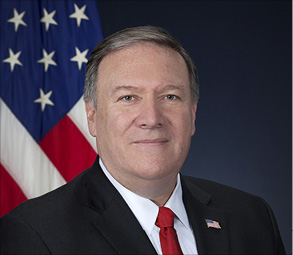Mike Pompeo landed in Doha to witness the signing of this historic deal with Taliban insurgents.
KABUL/DOHA: The United States signed a deal with Taliban insurgents on Saturday that could pave the way toward a full withdrawal of foreign soldiers from Afghanistan over the next 14 months and represent a step toward ending the 18-year-war in the nation. While the agreement creates a path for the United States to gradually pull out of its longest war, many expect the talks to come between the Afghan sides may be much more complicated.
The deal was signed in the Qatari capital Doha by US special envoy Zalmay Khalilzad and Taliban political chief Mullah Abdul Ghani Baradar. US Secretary of State Mike Pompeo was on hand to witness the ceremony.
US Defense Secretary Mark Esper said that while the accord would be a good step, the road ahead would not be easy.
“This is a hopeful moment, but it is only the beginning. The road ahead will not be easy. Achieving lasting peace in Afghanistan will require patience and compromise among all parties,” said Esper, who met Afghan President Ashraf Ghani in Kabul where they announced a joint declaration in parallel to the US-Taliban accord.
The United States said it is committed to reducing the number of its troops in Afghanistan to 8,600 — from the current 13,000 — within 135 days of signing the deal, and working with its allies to proportionally reduce the number of coalition forced in Afghanistan over that period, if the Taliban adhere to their commitments.
A full withdrawal of all US and coalition forces would occur within 14 months of the deal getting signed, if the Taliban hold up their end of the deal, the joint statement said. For US President Donald Trump, the Doha deal represents a chance to make good on his promise to bring US troops home. But security experts have also called it a foreign policy gamble that would give the Taliban international legitimacy.
Ghani said he hoped the Doha deal paves the way towards lasting peace.
“We hope the US-Taliban peace will lead to a permanent ceasefire…The nation is looking forward to a full ceasefire,” he told a news conference in Kabul.
The Afghan government said it stood ready to negotiate and conclude a ceasefire with the Taliban, and it affirmed its support for the phased withdrawal of US and coalition forces subject to the Taliban’s fulfilment of its commitments.
It also said that it remained committed to preventing militant groups from using its soil to threaten the security of the United States, its allies and other countries.
Separately, NATO pledged to adjust the coalition troop levels in the first phase too, bringing down NATO’s numbers to about 12,000 from roughly 16,000 troops at present. “We went in together in 2001, we are going to adjust (troop levels) together and when the time is right, we are going to leave together, but we are only going to leave when conditions are right,” NATO Secretary-General Jens Stoltenberg, who was in Kabul on Saturday, told reporters. Hours before the deal, the Taliban ordered all its fighters in Afghanistan “to refrain from any kind of attack … for the happiness of the nation.”
“The biggest thing is that we hope the US remain committed to their promises during the negotiation and peace deal,” said Zabiullah Mujahid, a spokesman for the hardline Islamist group.
For millions of Afghans, the deal represents some hope for an end to years of bloodshed.
The war, which has killed tens of thousands of people, began when the United States launched attacks on Afghanistan just weeks after the Sept. 11, 2001, attacks on New York and Washington by the Afghanistan-based al Qaeda militant group.
Washington accused the Taliban of harbouring al Qaeda and its leader Osama bin Laden, and with its allies ousted the group from power. But the Taliban has remained a potent force and currently controls about 40% of Afghan territory.
Prospects for peace remain uncertain given the next step is reaching agreement with the Afghan government. Senior members of the Afghan government and countries surrounding Afghanistan have been concerned that the United States could abandon Kabul much like it was perceived to have left the region after the Soviet Union exited Afghanistan decades ago.

